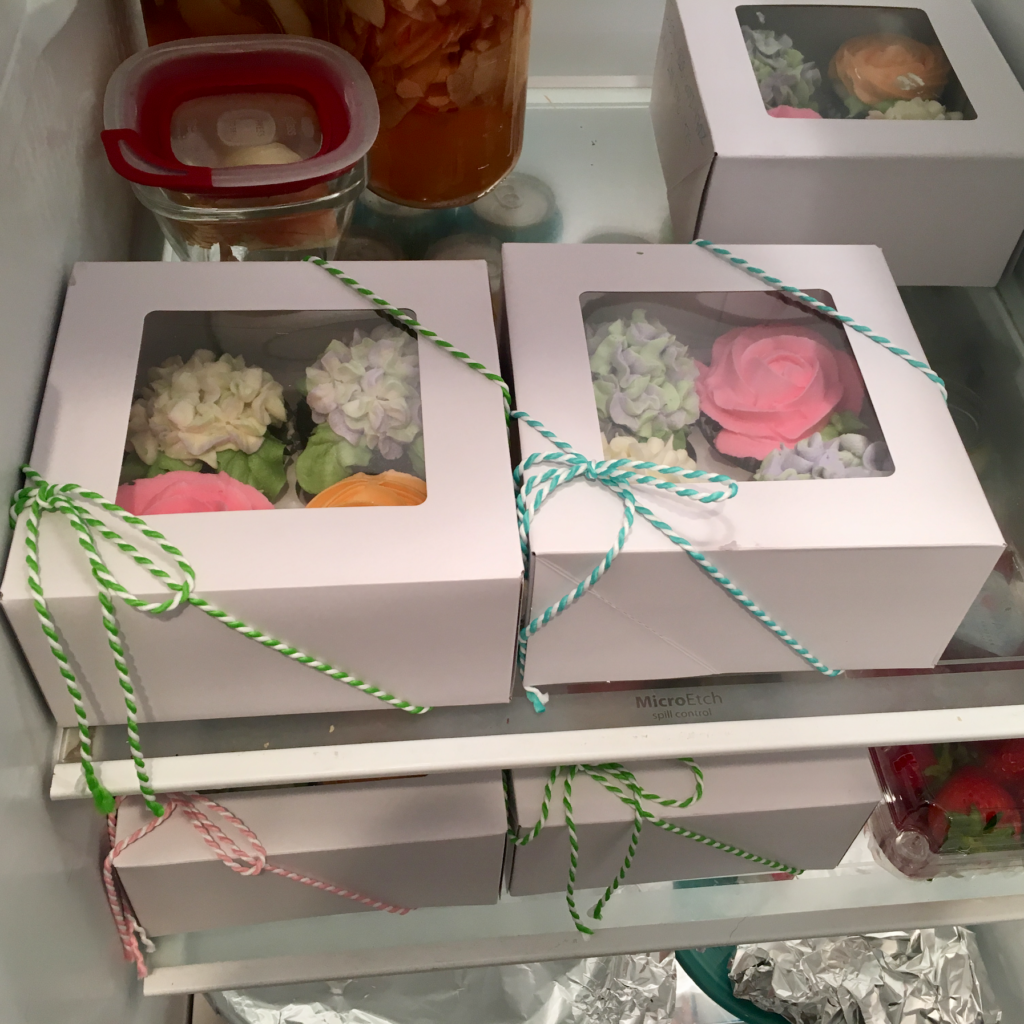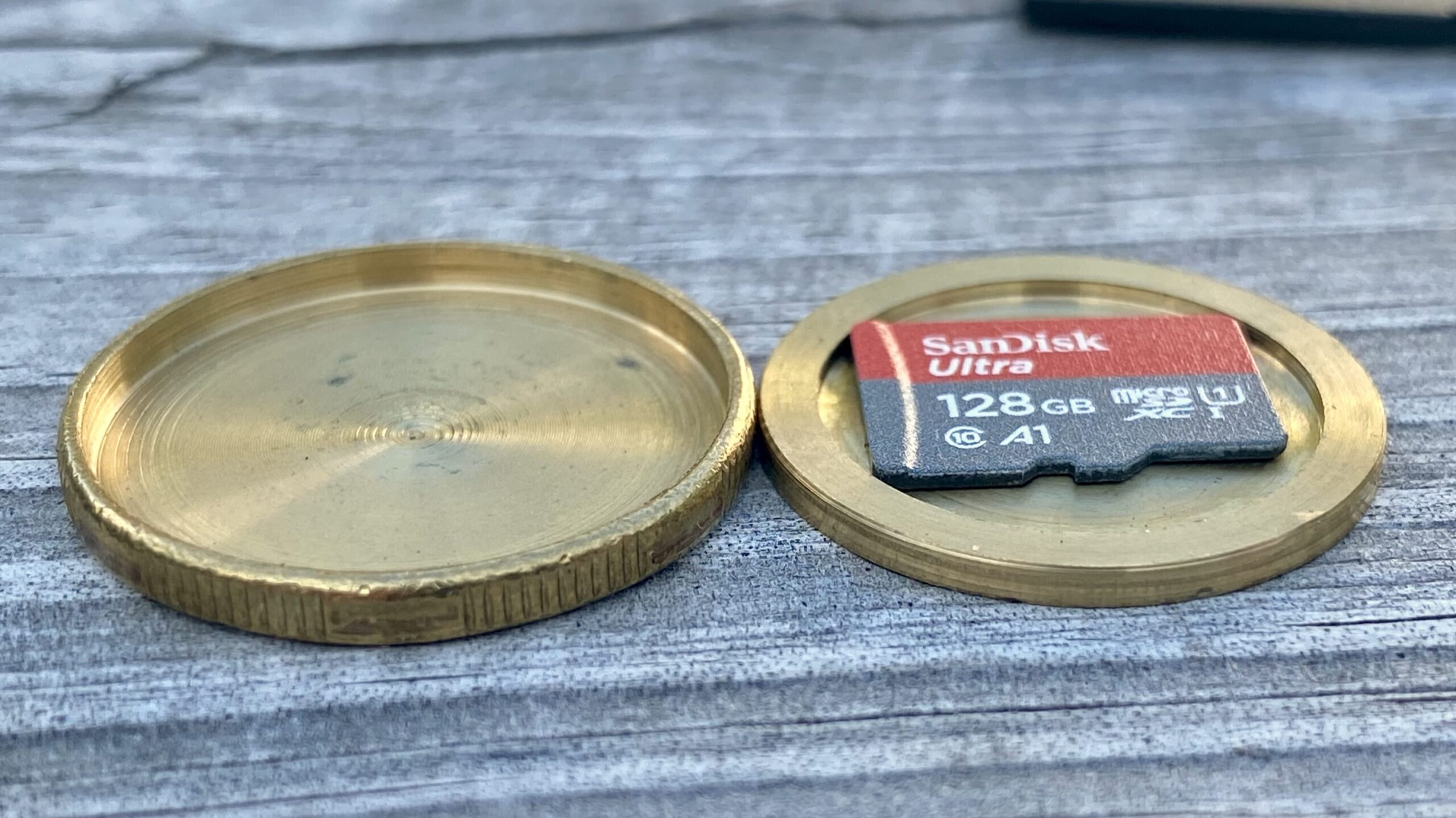In this post I discuss why the much-maligned .25 ACP is the ultimate defensive caliber. I also explore the extensive testing and evaluation that has led me to this question, and how it will impact me moving forward. Enjoy!
Just kidding. Today I’m reposting my article on building rapport with your neighbors. In the nine months since this article was published it has received fewer than 200 views. The subterfuge here isn’t merely my attempt to trick you into clicking. I actually believe this information is important – way more important than any article about the “best” caliber and I sincerely want to share it. Enjoy!
This article contains affiliate links.
Building Rapport With Your Outer Cordon (AKA Your Neighbors)
A human support system is important in day-to-day life and absolutely imperative for surviving any sort of adverse, long-term event. When we first moved into our house, we didn’t know a single person in town. We worked really hard initially to fix that, and we’ve continued to work to maintain it. I think you should, too. This post is going to talk about how to get your neighbors on board with you, and quickly. First, I’ll talk about why you’ll want to do that.
Caveats
Before I do any of that, I want to issue a couple of caveats. I realize that the idea of intentionally “building rapport” and referring to your neighbors as potential “assets” may sound selfish. It might sound exploitative, self-serving, manipulative, or crass.
Here’s the deal, though: it’s nothing more than integrating yourself into your neighborhood. It is completely natural to desire the kinds of things that groups of people have brought each other for millennia: security, stability, sense of purpose, belonging, friendship, kinship. Instead of just hoping it will one day happen, though, these are steps you can take to make it happen on an accelerated timeline.
There’s a sort of Catch-22 that prevents this from being selfish if you do it right. If you’re doing it right, you’re actually being a neighbor. It’s not manipulative, exploitative, or selfish because in the course of being a good neighbor you’re going to work. You’re going to give a little more than you get. If you give your word, live by it, be a participant in your community you aren’t taking advantage, you’re being a part of it. If you are just taking advantage of it…that’s going to be pretty obvious and it’s almost certainly not going to work out well for you.
Why Care About Your Neighbors
You get to pick who you sleep with, date, marry, and hang out with. To some extent you get to pick who you work with. You don’t really get to pick your neighbors though. Your neighbors can be a huge asset to you, or they can piss you off, keep you up nights, and drive you half crazy…for maybe thirty years. It’s a good idea to get them on your side and keep them on your side.
At very worst, you can hate your neighbors and they can hate you right back. I’ve been privy to long-standing feuds between neighbors and it ain’t pretty. It sucks a lot of energy to be angry at someone all the time, or constantly be on the lookout for ways they’ve slighted you or are trying to screw you. This is definitely NOT the situation you want to be in with neighbors.
Neighbors can be neutral. Outside of a quick wave as you pass on the road you don’t talk, don’t hang out, and don’t care.While clearly preferable to being in a purely adversarial relationship with your neighbors, this doesn’t do a lot for you and could be way better.
Neighbors can also be a huge asset, in a number of ways. By establishing and maintaining some rapport, neighbors can function as a ring of security for your home. They can be part of a larger support system in a major disaster/grid down scenario. And at very least, they can be some cool people you can hang out with, ask for help, and provide help to. Let’s dig a bit more deeply into what neighbors can do for you – and what you can do for them.
Neighbors as Security
Neighbors can be the first line of defense – your “outer cordon” as I put it in the title – in a comprehensive home security plan. They know who and what belongs on your street and who and what doesn’t. They know what’s normal and what’s not in a way that a security camera never will. They’re often willing to call and let you know if something is up and you aren’t there. Neighbors can be an excellent source of human intelligence about the goings on in your little enclave and perhaps the community at large.
I got to be a part of this recently. The very morning I was writing this article our dogs started barking. I looked out the window toward my northern property line. I saw four men and a boy walking through my neighbor’s pasture toward the road. I texted my neighbor and let him know I’d just seen four dudes on his property. Turns out they were looking for lost hunting dogs and wasn’t a huge deal. I shot back with a text that said, “No worries man, just wanted to be sure. If you ever need backup just let me know!”
Neighbors in a Grid Down
In any sort of disaster lasting longer than a few days, you’re going to be forced into a much more close relationship with your neighbors. Just a few days without SnapChat, Facebook, email, iMessage, Netflix, and the other electronically-mediated “interaction” to dull the senses will push people outside to interact with each other. In a long-term disaster there might be other reasons to interact with your neighbors: the formation of working parties, security teams, the pooling or sharing of resources, etc.
During such a disaster, most people are likely to be in a heightened state of emotional arousal. It’s probably not a good idea to go into a situation like this with a big dispute with one of your neighbors, or being distrustful of your neighbors, or them of you. Personally, I also don’t want to be in the middle of a dispute between two other neighbors, or compelled to choose sides. Heightened states of arousal brought on by lack of conveniences, lack of food, and an uncertain future are only going to exacerbate interpersonal problems – not make them disappear.
Interpersonal conflicts can also lead to the formation of in-groups and out-groups over a long enough duration. This is the absolute worst-case scenario. You may be forced to choose sides, or caught in the middle. Being seen talking to one neighbor may make you an “enemy” of others. Over a very long-term disaster no man is an island. You will need help and support. Exert your influence now to bring as many people together as possible.
Even if you never see such a disaster, believe me – it’s much more pleasant to have a friendly relationship with your neighbors. You aren’t limited to sitting around, waiting for that to happen, though. You can make it happen. Here’s how:
Phase 1: Establish Initial Rapport
How can you quickly establish initial rapport with your neighbors? Here’s what we did.
About two weeks after we moved in my girlfriend baked a bunch of homemade cupcakes. We packed them up in 4-packs and wrote our names and phone numbers on the side. We live near the end of a very rural road, so we didn’t go to everyone on our street; we chose neighbors whose property adjoined ours, or who we could see from our house on the military crest of the hill. That only ended up being five houses. If you live in suburbia, you might have a few more houses to hit.
Starting at around 2 on Sunday afternoon (we picked Sunday specifically, and that time specifically because people were less likely to be at work, church, or otherwise busy), we began taking boxes of cupcakes to neighbors and introducing ourselves. Our neighbors were universally surprised and appreciative. Almost all invited us in and chatted with us at length. We got a lot of information about who lived where, who was related to whom, who had grown up here and who was a transplant. We told them not to hesitate to give us a call if our dogs were too loud (or got out of the fence), or if we could ever do anything for them.
Some surprises were in order for us, too. We were kind of surprised to learn that some neighbors who lived right across the street from each other had never met. We we surprised to learn that one of our neighbors had withdrawn and made an effort not to get to know the neighbors after someone had vandalized a flag on his fence. We learned that some of our neighbors had a lot in common with other neighbors…but they hadn’t had the chance to learn that about each other.
In total, this introduction cost us what we had invested in the cupcakes, plus about two hours to walk around and get acquainted with our neighbors. In return we got some very good conversation, met a neighbor couple we didn’t know we had (their house is hidden, but someone else told us about them), established lines of communications people could use to reach us.

This basically plays on the concept of reciprocity; at this point all our neighbors felt ever-so-slightly indebted to us. I don’t plan to take advantage of that debt, but I’d rather the scales be tilted slightly in our favor.
It doesn’t have to be cupcakes – or baked goods at all – but I really recommend bringing your neighbors something that you made rather than something you purchased. It could be homemade pickles, eggs from your chickens, cut flowers from your garden – anything you put personal effort into. The effort and the thought will be appreciated much more than any monetary value transferred. This may seem like a lot of work, but remember that you’ll likely live here for at least several years and it will be well worth it in the long run.
Phase Two: Establish Closer, Individual Rapport
Again, putting a name to this sounds kind of shitty, but it’s not. We genuinely wanted to get to know our neighbors a little better on a couple/individual level. The cookie-cutter answer would be to have everyone over for dinner. We did this with a couple of our neighbors but not all of them. Personalize as much as you can here.
We invited one couple – who are close to our age – out to a local brewery. For another, we offered to come over and help them clean up a tree that had fallen on their property. The elderly couple across the street had mentioned how beautiful our dogs were, so we leashed up the dogs one afternoon and walked them over to that house.
This will probably be an ongoing process. In a small apartment where people don’t know each other at all (and don’t expect to get to know anyone) a little goes a long way. One outing for drinks or dinner will bind you pretty closely to that neighbor. If you’re in my situation – where some of my neighbors have been here for 40 years – one box of cupcakes and invite for dinner just gets your foot in the door.
Phase Three: Establishing Neighborhood Cohesion
I’m probably not the first person to have attempted this, and I’m not there yet. I’m certainly not the expert at this, but I’ll tell you what I have done and what I plan to do.
If you’re chatting with one neighbor, point out things he may have in common with another. I’ve noticed that in conversation many people want to focus on differences when talking about other people. You should try to find ways people are the same. For example: both of my next door neighbors are veterans: one of Vietnam, one of Iraq. However, one lives on one side of me and one on the other; I don’t think they had met each other before we came to the neighborhood. After learning this I mentioned to each that the other had served. That’s a really easy bond that supersedes a lot of other things.
I’m always looking for ways to talk one neighbor up to another, trying to point out good things about them, things they’re skilled or knowledgeable about, and things they might be helpful with. If you do this, please respect your neighbor’s privacy. I didn’t overstep in my military example because neither neighbor is bashful about his military service. But I wouldn’t want to pass on things about medical conditions, conflicts/grudges, etc. I would also tread really lightly around religious and political stuff unless they bring it up first, and even then I’d exercise some restraint.
Our next move is to get everyone together for some kind of mediated fun. As the new kids in town we know people probably have standing plans for the big holidays like Independence Day, Labor Day, etc. Oddly, almost no one plans events around Veteran’s day, so we’re currently putting together invitations for a cookout on Veteran’s Day weekend. We’re hoping our neighbors – as well as some friends we’ve met at the gym and elsewhere – will come out and get acquainted with one another.
Though all of this is borne out of self-interest, it’s not selfish. Bringing your neighbors closer together is doing a service to all of them. Everyone desires a sense of belonging and wants to feel like a community. This is helping engender not only everyone to us, but everyone to everyone else.
Phase Four: Ongoing Maintenance
This is the phase where all of this will begin to seem 100% unselfish. Keep at at. Be someone your neighbors can count on.
Be available: This is one thing we stressed really hard to all of our neighbors: “if you ever need help with anything, please let us know!” The thing with that is, you have to be willing to follow through. If your neighbor asks for help, you’d better be willing to help if at all possible. Even if it’s inconvenient, consider it an investment.
Don’t be Afraid to Ask for Help: As I’ve mentioned, I like to keep the balance always a little bit in my favor, but not too far in my favor. That’s a fine line, but your neighbors probably won’t like feeling too far in your debt, either. Give them the opportunity to repay the favor sometime. “Hey Bill, I’m moving a new couch in tomorrow. Would you mind giving me hand?” “Sorry to bother you, John – I’m cutting up this tree and my chainsaw isn’t quite big enough. Would it be possible to borrow yours?”
Obviously you should keep the ask appropriate to the context. Don’t give your neighbors four cupcakes, then ask them to spend a weekend helping you raise a barn, or to pick your kids up at school. Also, don’t come right out of the gate with asks; make that initial introduction, get to know the individual/couple, then give it some time. Finally, don’t manufacture reasons for them to help you; use it only when you need it.
Become Useful: This is longer-term. We thought that one of our big priorities would be planting fruit trees. As it turns out, nearly every one of our neighbors has apple trees already. One has already told us to come over and pick as many apples as we’d like (we picked way, way too many). Another has apples sitting on the tree that won’t get picked – almost certainly we could ask for more. We’d still like our own trees, but our priority has shifted to something a bit more unique to us, and something that will be more welcome to our neighbors than something they already possess a surplus of.
There are two fronts we are working here: honeybees and beer/cider. We have two neighbors with bees, but to our knowledge neither gets an appreciable amount of honey. Honey will probably be more valuable in our little neighborhood than apples.
We are also homebrewers. We just brewed our first batch in our new home a few weeks ago. When we have beer ready to go you’d better believe we’ll be giving some away. We are also looking at cider press to make use of all the excess apples our neighborhood generates. Though we aren’t necessarily cider fans, cider is a good way transfer the value of apples into long-term storage. A gallon of cider or apple-jack would probably be a welcome gift to most of our neighbors, too†.
There are myriad other ways you can become useful. Knowledge of just about any physical skill can make you useful. A strong back and willingness to help your neighbors can make you useful. Pick a skill. Learn it. Share the spoils. Repeat.
Some Other Tips
Here are just a few more tips. I’m not an expert on rapport building, and I’m not a former HUMINT guy. But I have done this a time or two. I’ve also been to some pretty cool “human exploitation” courses. And, I’ve ingratiated myself into more than one neighborhood.
Don’t Be Afraid to Put Yourself Out There: This is a thing I’ve struggled with – both personally, and as a product of my significant other (not my current significant other) experiencing a hesitance to approach neighbors. It can be a little nerve-wracking to walk up to an unknown door and knock on it. You’ve got to overcome this hesitation and do it; it will be worth it.
Keep it real: The best way to make it seem like you’re genuinely interested in your neighbors is TO ACTUALLY BE INTERESTED IN THEM. If it’s fake, it will probably seem fake. There are few bigger turn-offs in life than someone who is trying to fake the funk and be your friend for completely self-serving reasons. Be genuinely interested in your neighbors. Don’t completely forget your manners, but also don’t be afraid to let your guard down based on the vibe you’re getting.
60/40 Principle: Always try to do a bit more for your neighbors than they do for you, or you ask them to do for you. I always like to the ledger to be just a tad in my favor. Not because I want to be manipulative; I just don’t want to ever be the guy that’s getting more than he’s giving. I like living by the 60/40 principle – feeling like I”m giving 60 and taking 40 – to keep the ledger balance in my favor.
Don’t Overdo It: Don’t take your neighbors a cake or jar of pickles every week. Don’t blow them up with reports of “suspicious” activity. Don’t make a habit of stopping by their house unannounced, and just generally don’t overdo it. You don’t want to wear out your welcome, or become known as the busy-body or the gossip.
Another type of “overdoing” it is getting too involved with any given neighbor. Personally, I’d avoid getting into a sexual relationship, going into business, or getting too close to any of my immediate neighbors. If the relationship fails (regardless of its exact nature) there are likely to be at least a few simmering, unresolved issues. If you do go into any kind of money-making venture with a neighbor, make sure he gets a bit more out of it than you do. Not too much, or you’ll end up feeling resentful, but just enough that you’re always on the right side of the balance.
Additional Reading
Bar none, the best book on rapport building I’ve ever read is called It’s Not All About ‘Me’: The Top Ten Techniques for Building Rapid Rapport With Anyone by Robin Dreeke. Dreeke is a career FBI agent, and distilled his best techniques for building rapport into this short tome. If that sounds cheesy (it does sound that way a little) it’s not. His techniques are tried and true and easily accessible. Check it out, and if you buy it through the link on this page you’re helping me out a little (it’s an affiliate link).
The End Result
I’m probably not going to win most of my neighbors over into deep, long-term friendships. They aren’t going to replace my kin, friends I’ve been in combat with, or people I have a deep, abiding bond with. But, they all know my face. They all know I’m “nice” and I have offered to help them with something. The worst case-scenario in any sort of contingency is being an unknown. It’s easy to dislike and demonize an unknown. They also know I’ll pitch in and help out.
Our neighborhood is a mixed bag of tactical hippy/libertarian types, straight-up hippies, retired factor worker conservatives, a preacher or two, and a gay couple. No one on the street has a bad thing to say about each other, though. That’s where I want to keep it. Correction: I want to make it better. Hopefully, my evil plan to make everyone happier, closer together, and a part of a cohesive bigger whole succeeds. Maybe I’ll report back sometime.
†Additionally, cider is much more sustainable in the long term than beer. Malted barely may be difficult to come by (we can grow hops) but apples and yeast are no problem.
Image Attribution: Feature Image By Jtmorgan – Own work, CC BY-SA 4.0, https://commons.wikimedia.org/w/index.php?curid=42757204





